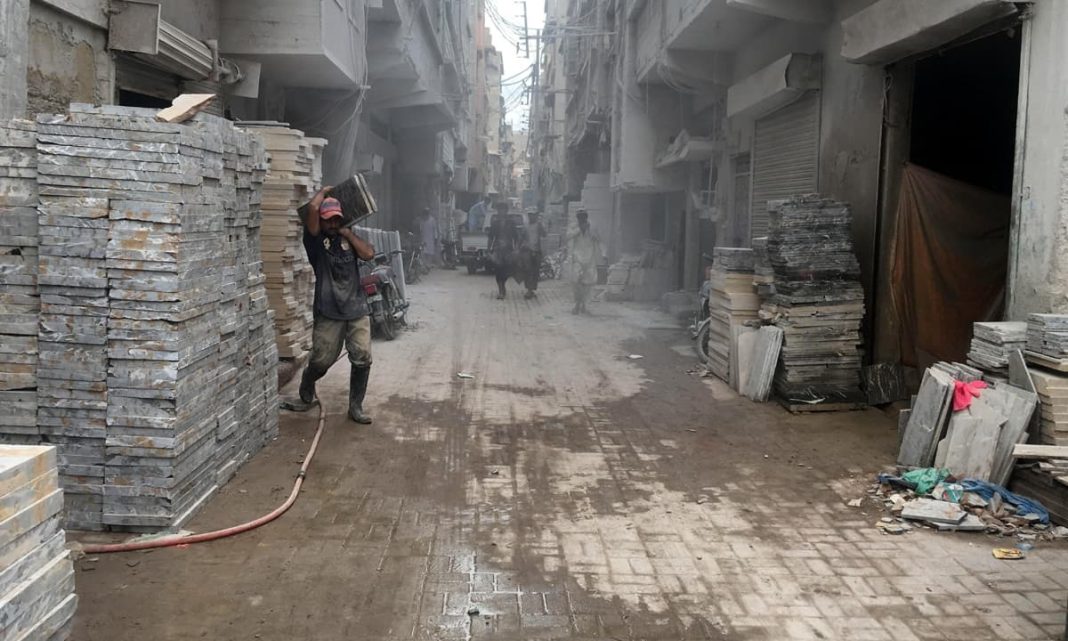ISLAMABAD: Export of Calcium Carbonate (CaCO3) from the indigenous processing of marble slurry can fetch a fortune for Pakistan, reports WealthPK.
The ultrafine dust recovered from the slurries of processing plants is a widely applicable product in a multitude of civil and mining engineering works. It is also used as a primary or secondary raw material for a variety of industry issues. Establishment of value-adding units along with every processing factory can to a great extent help in the socio-economic wellbeing of people.
In 2021, Pakistan imported 778, 789kg of Calcium Carbonate worth US$2,369.12 million from different countries. However, the precious foreign exchange spent on this import could be saved through local production. The total estimated reserves of marble and granite in Pakistan are about 160.1 million tons. A great quantity of marble is processed daily and its proper reuse can establish not only Pakistan’s industrial sector, but also bolster its economy strongly.
The Calcium Carbonate market is projected to reach US$57.36 billion at a compound annual growth rate (CAGR) of 5.6% by the year 2027 from US$39.17 billion in 2020. It is used as a filler in paper, tire, rubber, polypropylene, concrete, paving material, electronic insulators, and industrial filters; as a flux in blast furnaces, as acid neutralizer for industrial effluent, for desulfurization of flue gas (exhaust gas or stack gas) in electric power stations and heavy metal sorption. In the construction industry, it is used in landfills, as resin conglomerates for flooring and coating, and as a whitewash. It is also used by the pharma sector in multiple chemical applications.
Talking to WealthPK, Muhammad Yaqub Shah, Principal Geologist at the Global Mining Company, Islamabad, Member of National Council for Marble & Granite and Minerals and former general manager geology at the Pakistan Mineral Development Corporation (PMDC) said, “Large heaps of waste are produced from quarrying, extraction, sawing, water treatment, and polishing of marble/granite. The powder from quarries is mostly wasted. Largely, two types of waste are generated i.e., solid (granules, chippings, and pieces of different sizes) and semi-liquid/slurry (which can be further processed to get CaCo3). The development of CaCo3 based industry is important and will be a new edition to Pakistan’s economic chapter. It will also help boost the mineral industry and generate more jobs and income opportunities.”
Deputy Manager of Planning of Pakistan Stone Development Company (PASDEC) Asad Ali said, “No proper policy is framed by the government to make any specific product from multiple types of waste obtained during marble/granite quarrying/processing but sometimes PASDEC arranges workshops to make women skilled to craft many articles from such waste, i.e., tables, table tops, pencil holders, ashtrays, mosaics, and other art pieces. To date, PASDEC has trained about 1,262 women in the reuse of marble by-products. With the involvement of all stakeholders, such value-adding units can be established.’’
Talking to WealthPK, owner of Al-Basit Marble Factory in Risalpur Marble City Saleh Muhammad said, “My marble processing unit spans over one-hectare land. The processing residues are collected in eight tanks of 80×80 sq. ft. with about three to four feet in depth. The residues are further exhausted to a collective dumping point allocated by the government consisting of one-hectare area. We do not process slurry but we recycle the water for use. Mostly builders take away the wasted pieces of marble of different sizes and mix slurry to be used as a filler. Mine is the only unit where water is recycled. If the government shares with us the ways how to reuse the waste and to add value to its training centres, obviously, we will feel happy to adopt it.”





